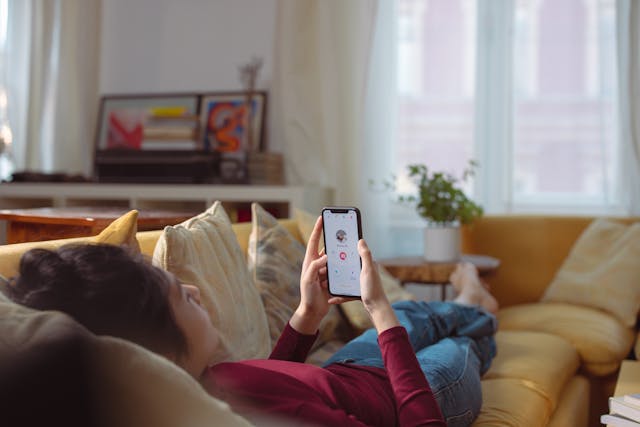As of July 2024, there were 5.17 billion social media users worldwide, or 63.7% of the total population. The average Instagram post received 513.37 likes, 15.66 comments and 19.79 saves in 2024. Media like Instagram gives people of all ages expectations about what a relationship should be like, which are often unrealistic. Social media influencers in particular often have relationships that are not as perfect as they would like their followers to believe. We explore how social media can make dating a superficial and unpleasant experience.
Ghosting
Ghosting is an easy way out on social media. You give no explanation as to why you stop talking to someone and act as if nothing happened and that person was never in your life. It still occurs in modern dating culture. A 2023 survey found that a quarter of all people had been ghosted at least once, and about half of those who did the ghosting wanted to avoid confrontation. Interestingly, this trend is moving into the job market: by 2024, 93% of Generation Z admit to faking an interview, and 87% have not shown up on the first day of work. They do it to avoid conflict, just like on dating sites.
Pick-Me boys and girls
Choose me girls and boys pretend to be different from other people in the hope that this will make them seem more attractive, which is often the case. But once you get to know them, you notice that deep down they are primarily concerned with attention, and social media is an obvious outlet for this need. If you are in a relationship with someone, you will find that everyone on the medium knows about it, even in detail.
Jealousy
A surprising 82% of Americans admit to being jealous of a partner. Online conversations are a big problem, with 28% of respondents saying they cause jealousy. Social media contribute to jealousy in relationships. Most users are concerned with likes, and you can usually see who likes someone else’s posts or photos. Almost everyone who has been in a relationship has wondered why someone liked a partner’s post or photo. Some may even worry that their partner is cheating on them with the user who likes their photos, whose photos they like, or both. Some people in this situation may fear that they don’t measure up and become jealous of the other person.
There are even exact statistics on how many likes a post should have. The acceptable average varies by medium and audience size. On Instagram this is 3-6% of the number of followers.

They are a source of distraction
Social media can also make dating in real life unpleasant. You don’t have to imagine being on a date with a guy or girl who is heavily distracted by their phone or feels awkward without it. FOMO lingers and leaves a distinctly unpleasant mark on dating experiences. The obsession with what happens on social media never seems to go away for some people.
Pair of “Goals”
Social media influencers lead couples to set unrealistic “relationship goals.” There are many examples, but one of the earliest dates all the way back to 2015. Jay Alverraz and Alexis Ren took over YouTube and Instagram with photos and videos of them traveling the world, dining out lavishly, and indulging in a luxurious lifestyle. .
To the dismay of their millions of followers, they broke up just two years later. Jay found the social media fame too much to handle. He started treating his girlfriend disrespectfully and only cared about the money the messages made. The relationship made Alexis anxious because she was constantly afraid that she didn’t look good enough for Jay. Yet millions of people worldwide wanted a relationship like Jay and Alexis, characterized by displays of wealth and an excessive focus on money and appearance.





